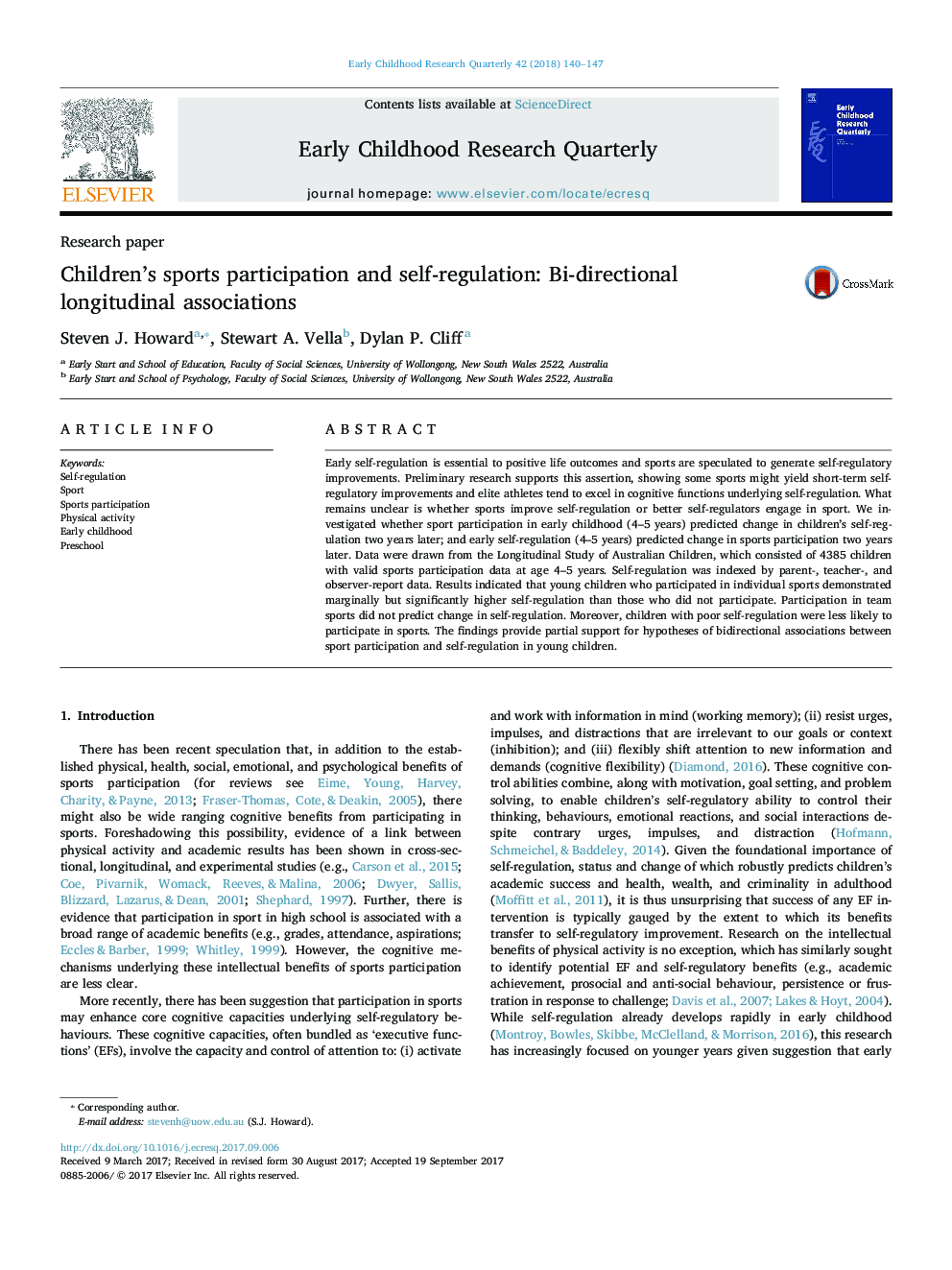| Article ID | Journal | Published Year | Pages | File Type |
|---|---|---|---|---|
| 4938169 | Early Childhood Research Quarterly | 2018 | 8 Pages |
â¢We investigate bidirectional longitudinal associations for sport and self-regulation.â¢Children who played individual sports at age 4 showed better self-regulation at 6.â¢There was no association of team sports at age 4 with self-regulation at age 6.â¢Children with low self-regulation were less likely to participate in sports.â¢Findings support bidirectional associations between early sport and self-regulation.
Early self-regulation is essential to positive life outcomes and sports are speculated to generate self-regulatory improvements. Preliminary research supports this assertion, showing some sports might yield short-term self-regulatory improvements and elite athletes tend to excel in cognitive functions underlying self-regulation. What remains unclear is whether sports improve self-regulation or better self-regulators engage in sport. We investigated whether sport participation in early childhood (4-5 years) predicted change in children's self-regulation two years later; and early self-regulation (4-5 years) predicted change in sports participation two years later. Data were drawn from the Longitudinal Study of Australian Children, which consisted of 4385 children with valid sports participation data at age 4-5 years. Self-regulation was indexed by parent-, teacher-, and observer-report data. Results indicated that young children who participated in individual sports demonstrated marginally but significantly higher self-regulation than those who did not participate. Participation in team sports did not predict change in self-regulation. Moreover, children with poor self-regulation were less likely to participate in sports. The findings provide partial support for hypotheses of bidirectional associations between sport participation and self-regulation in young children.
